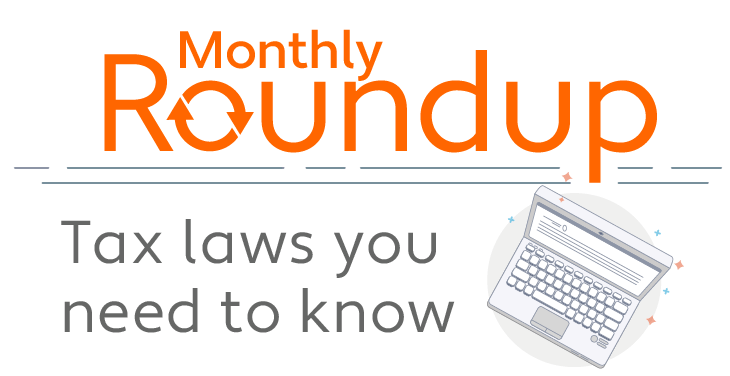The sales tax holiday state/local tax divide – Wacky Tax Wednesday
Sales tax holidays temporarily exempt certain products from sales and use tax. But many states impose sales tax at both the state and local level. Do sales tax holidays apply to state and local sales taxes? Or to one but not the other? The answer depends on the state and locality, as well as the time of sale. This means sales tax holidays can complicate sales tax compliance even more than you might think.
In most states, these temporary sales tax exemptions apply to state and local tax, allowing consumers to pay no tax at all on qualifying items. This is the case in Florida, South Carolina, and Texas, among others.
Yet sometimes state sales tax holidays only apply to the state portion of the sales tax. This is the case in Connecticut, which has no local tax. And it’s generally the case for two out of three of Louisiana’s annual sales tax holidays: the one for hurricane preparedness in May, and the summer sales tax holiday in July.
Louisiana sales tax holidays on vacation, mostly
However, after a special session of the Louisiana Legislature made significant changes to sales tax exemptions and exclusions in June 2018 (see Act 1), the Louisiana Department of Revenue determined the three sales tax holidays “are not among the list of approved exclusions and exemptions from the 4.45 percent state sales tax.” Consequently, state sales tax applies to all qualifying items during all three tax-free periods between July 1, 2018, and June 30, 2025. This effectively places a temporary moratorium on two out of three sales tax holidays in Louisiana.
There’s more. The temporary exemption used to apply to both state and local sales taxes during Louisiana’s third tax-free period, the Second Amendment Weekend Sales Tax Holiday. Because Act 1 doesn’t affect local sales taxes, qualifying items will remain exempt from local Louisiana taxes during the Second Amendment Weekend Sales Tax Holiday through June 30, 2025, even though state sales tax applies.
You get to decide
Missouri and Alabama allow counties and municipalities to participate or opt out.
Some localities in Alabama have let the Department of Revenue know they’ll participate every year; many decide annually to participate, or not. It’s one way to keep retailers on their toes.
Furthermore, localities may be able to exempt a portion of local taxes while applying the rest. For example, during the recent back-to-school sales tax holiday:
- Geneva County applied the sales tax holiday to the 1% regular county sales and use tax but not the 1% education sales and use tax.
- Spanish Fort granted the exemption for the 1.5% tax collected in jurisdiction 9102, but not the 1% tax collected in the Spanish Fort East Shore District (9202), or the 2.45% tax collected in the Spanish Fort Town Center District (9203).
- Thomasville allowed the exemption for the 5% Thomasville sales and use tax but not the 0.5% school sales and use tax or the 0.5% tax collected for the hospital/industrial board.
While this gives local governments greater control over their tax revenue, it can create a real compliance nightmare for businesses.
With fourteen states providing sales tax holidays this month, opportunities for savings are great. So is the likelihood that sales tax compliance will be even more of a hassle than usual for retailers. Learn how tax automation software can help.

Your competitors live by this annual report
Trusted by professionals, this valuable resource simplifies complex topics with clarity and insight.
Stay up to date
Sign up for our free newsletter and stay up to date with the latest tax news.













